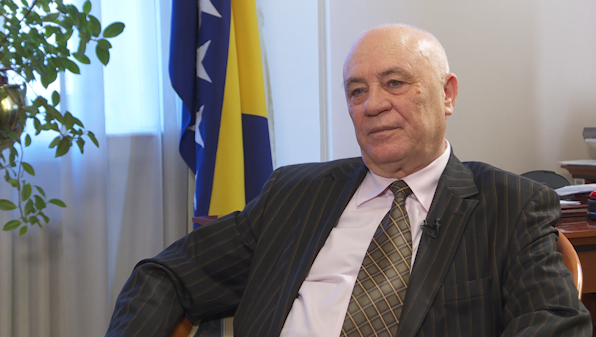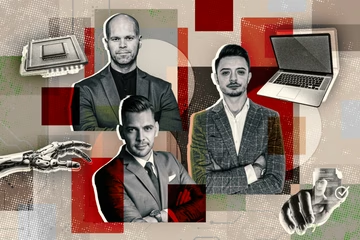
The reason why no one was held accountable for not implementing BiH Constitutional Court’s decision lies within the BiH Prosecutor’s Office, and only they could answer this question, Constitutional Court President Mato Tadic told N1, adding that such practice is basically a criminal offence.
"No one was held accountable and for that and I usually say – one should ask the Prosecutor's Office of BiH about that. According to our Criminal Code, the non-execution of decisions of the Constitutional Court of BiH and the European Court of Human Rights is envisaged as a criminal offence. We are one of the few countries that have criminal offences. Why? Because decisions are implemented everywhere else. Must we threaten people to implement such decisions,” Tadic asked.
However, he said that most decisions do get implemented.
Asked by N1’s Tina Jelin-Dizdar whether the celebration of the Republika Srpska (RS) entity Day was therefore unconstitutional or not, Tadic said that "in essence, they didn’t respect our decision."
Asked whether it was a crime, Tadic said that the BiH Constitutional Court did not decide on that matter.
"The Constitutional Court has issued a decision on non-execution of our decision, submitted it to the Prosecutor's Office, and they are the ones that decide whether it is a criminal offence or not," he said.
He adds that no one has been held accountable so far for not implementing the decisions of the BiH Constitutional Court.
When asked whether everything that has been going on in the RS lately is the beginning of a legal secession, Tadic stated that it is a political issue and that the Constitutional Court of BiH does not have any such case.
"We work according to the Constitution adopted in Paris in 1995, with one amendment relating to the 2009 Brcko District. We also refer to international documents that are an integral part of our constitutional order, primarily the European Convention on Human Rights," the President of the Constitutional Court of BiH added.
He noted that it is a known fact that the High Representative in BiH imposed a number of laws that later passed through the BiH Parliamentary Assembly and that they became part of the domestic legal system.
"This has now become the subject of different interpretations, whether it is relevant what was imposed by the High Representative, but not only that. What’s also being discusses not is everything that was transferred to the state level by the will of entity authorities. Whether this is good or not, ie whether there is a violation of the Constitution, the Constitutional Court will decide if it receives such a case," Tadic said.
He pointed out that some members of the BiH Presidency have different opinions about the Constitutional Court.
“We as professionals working in this institution do not pay attention to comments on the work of the Constitutional Court of BiH, of course, we are not happy, but we are doing our job. This is a corrective, a special branch of government, which is neither executive, nor legislative, nor judicial," the Court President said.
"There is a public perception that we are outvoting each other, that one ethnicity makes decisions with the help of another and things like that. No decision can be made without five votes, which means that a Bosniak, a Croat and a Serb voted for each decision. Only 0.9 percent of Constitutional Court decisions were resolved in plenary sessions. These administrative cases are resolved exclusively in plenary sessions submitted by certain entities," Tadic explained.
The President of the Constitutional Court observed that BiH has somewhat of legal chaos because it has four legal systems, which to some extent are trying to connect with each other.
Kakvo je tvoje mišljenje o ovome?
Učestvuj u diskusiji ili pročitaj komentare





 Srbija
Srbija
 Hrvatska
Hrvatska
 Slovenija
Slovenija



























































